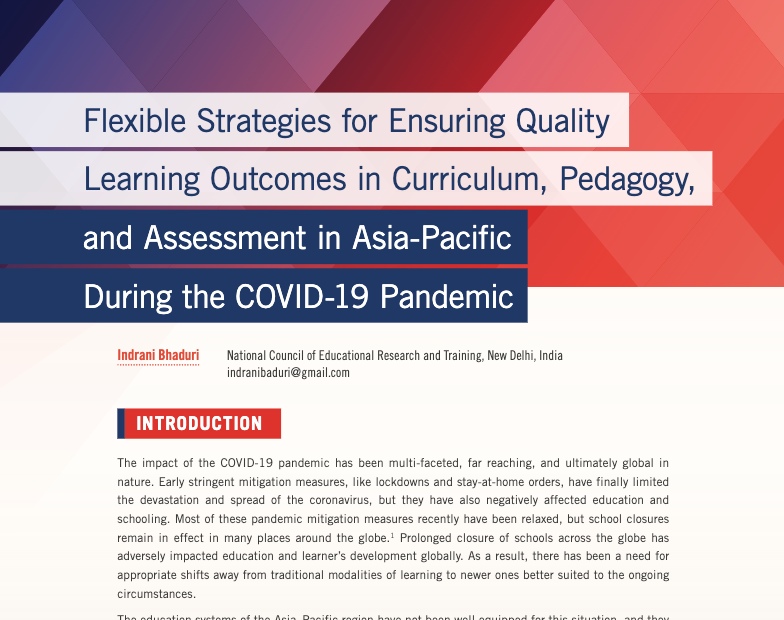
The COVID-19 pandemic has aggravated pre-existing challenges that the region of South and South-East Asia have been facing in terms of access and quality of education, and it has negatively impacted the education landscape in an unprecedented manner and scale. To respond to the rapid global spread of the pandemic, many countries have strategized ‘action, response, and resilience’ plans to mitigate the impact of the pandemic on their education systems.
As social distancing became requisite for containing the spread of the virus, closure of schools became the only viable option for safeguarding the health of the school-attending population. Presented with unique and sudden changes to school-based education systems, countries adopted various strategies to ensure that learning continued without major further disruption. Shifting to multiple platforms and modalities relating to online, distance- and digital teaching and learning have emerged as a foundational effort made by regional countries to support learners and teachers. Such interventions may become potential starting points to evolve beyond teacher-led classrooms and rote learning methods that dominate the education systems in a majority of countries in this region. National level, inter-agency/inter-departmental coordination and support from the private telecom and EdTech sectors has helped create the basic necessary infrastructure for teachers and students to connect and access various teaching-learning resources.
While pandemic has presented the South and South-East Asia region with opportunities for the digitization of education, and for making new efforts towards providing equitable education for all sectors of society, it has also highlighted persistent gaps in the education systems of the countries of the region, and proportional loss due to COVID-19 school closures. Nevertheless, efforts in the direction of achieving learning outcome continue amidst the challenges of the digital divide in society, reaching out to vulnerable populations of children, such as out-of-school children, girls, underprivileged children and children with special needs continues.
The domain of education is not unidimensional, and aspects relating to the mental, social and financial well-being of the family have direct impacts on the opportunities available for learning. Countries in the region should make concerted and concrete efforts to strengthen the social safety net that learning represents for children, by focusing on domains such as adult literacy, employment, skill enhancement and health so that the human development index shows gradual improvement. Parents and community together must become an integral part of the education of children, and they should be enabled to provide proper support, especially in terms of increasing the access of children to digital means of learning and communication.
Author(s): Indrani Bhaduri, National Council of Educational Research and Training
Year Published: 2021
Language: English
Country: Thailand
Download: https://neqmap.bangkok.unesco.org/wp-content/uploads/2022/09/380948eng.pdf


